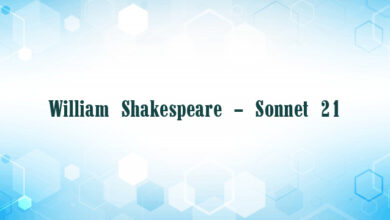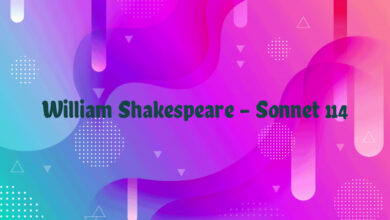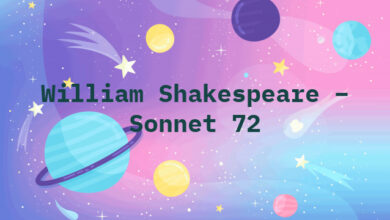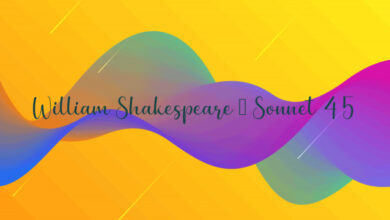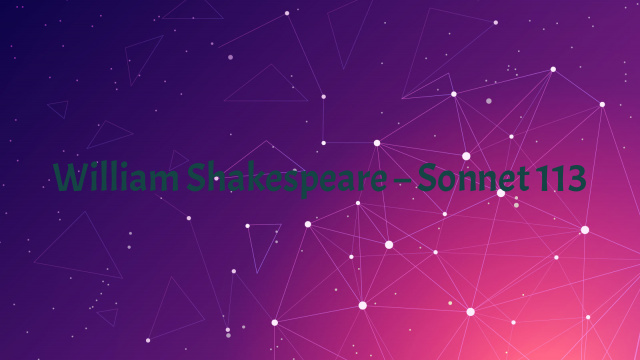
William Shakespeare – Sonnet 113
Since I left you, mine eye is in my mind,
And that which governs me to go about
Doth part his function, and is partly blind,
Seems seeing, but effectively is out;
For it no form delivers to the heart
Of bird, of flow’r, or shape which it doth latch.
Of his quick objects hath the mind no part,
Nor his own vision holds what it doth catch;
For if it see the rud’st or gentlest sight,
The most sweet favour or deformed’st creature,
The mountain, or the sea, the day, or night,
The crow, or dove, it shapes them to your feature.
Incapable of more, replete with you,
My most true mind thus makes mine untrue.
Sonnet 113: Translation to modern English
Since I left you I’ve been preoccupied with my thoughts, and my eyes, that allow me to see what’s going on around me, function only partly, so that I’m half blind. I have some vision but it’s unfocused because it can’t define any form, such as birds, flowers or anything else it lands on. My mind can’t grasp anything my eyes show it, nor can my vision retain anything it captures. That’s because whatever it sees – the most crude or gentlest sight, the most sweetly-formed or the most deformed creature, the mountain or the sea, the day or the night, the crow or the dove – my vision shapes it to resemble you. Incapable of doing anything else, and filled with your image, my faithful mind makes me see everything unfaithfully.
Summary
More from a sense of duty than a meaningful expression of emotion, the poet professes to see the young man in everything while he is away from the youth. The eye-mind dichotomy presented in the first line — “Since I left you, mine eye is in my mind” — recalls earlier sonnets in which thoughts of the young man contented the poet during their separation. Additionally, the use of the words “most” and “true” in the rhyming couplet is similar to their use in Sonnet 110 and hints that the poet is still trying to prove — perhaps more to himself than to the young man — his re-energized love for the youth: “Incapable of more, replete with you, / My most true mind thus maketh mine eye untrue.” Here, “most true mind” means that the only truth that the poet recognizes is his complete devotion to the young man.
